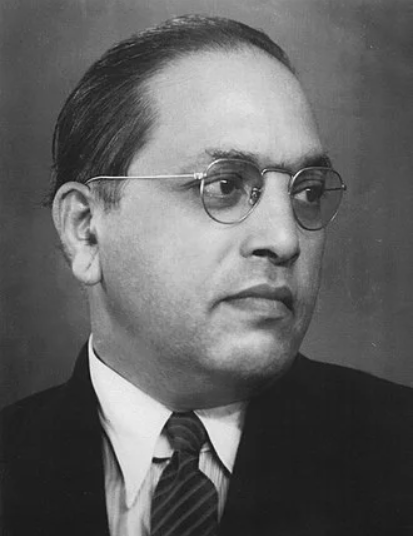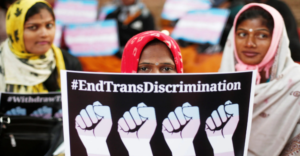~ Saakshi Sharma
Bhimrao Ramji Ambedkar a.k.a BR Ambedkar was born on 14 April, 1891. This year marks the 130th birth anniversary of the celebrated Babasaheb Ambedkar. He was an Indian jurist, politician, economist, social reformer, the chairman of the Drafting Committee and the first Law Minister of India. Thus, he was a key figure in both pre as well as post-Independence era.
ARCHITECT OF THE INDIAN CONSTITUTION
The Constituent Assembly formed a Drafting committee for drafting the constitution of Independent India. Dr BR Ambedkar was the chairman of the Drafting Committee. The Indian Constitution is seen as a reflection of the ideas of Ambedkar. So, he is also called ‘The Father of Indian Constitution.
In his early life, Ambedkar faced discrimination for being a Dalit. During the freedom struggle, he fought against untouchability and social injustice. While formulating the living document, he embodied the ideas of social justice, liberty, equality and fraternity in it. These principles are incorporated in Preamble to the Indian Constitution as well as in the articles included in it. Through this, he aimed at achieving the objective of a just society. Granville Austin thus defined the Indian Constitution as ‘first and foremost a social document’.
Justice
Justice forms the base of the constitution. It aims at social transformation through the enactment of the constitution. In the Preamble Justice has been ensured in three forms- social justice, economic justice and political justice. Ambedkar argued that social and economic justice are as important as political justice. In his famous speech in the Constituent Assembly he said, “On the 26th of January 1950, we are going to enter into a life of contradictions. In politics, we will have equality and in social and economic life we will have inequality. In politics, we will be recognising the principle of one man one vote and one vote one value. In our social and economic life, we shall, because of our social and economic structure, continue to deny the principle of one man one value. How long shall we continue to live this life of contradictions? How long shall we continue to deny equality in our social and economic life? If we continue to deny it for long, we will do so only by putting our political democracy in peril. We must remove this contradiction at the earliest possible moment or else those who suffer from inequality will blow up the structure of political democracy which this Assembly has so laboriously built up”.
To achieve this objective, chapters on Fundamental Rights and Directive Principles of State Policy have been included in the constitution.
Liberty
Being considered the soul of the individual, liberty is guaranteed in Part III of the Constitution that is under Fundamental Rights. Freedom of Speech and Expression [Article 19(a)], Freedom of Religion [Article 25], Right to Life and personal liberty [Article 21] became an important part of the Constitution. BR Ambedkar mentioned JS Mill’s caution for ‘all those interested in the maintenance of democracy’ that is, not “to lay their liberties at the feet of even a great man, or to trust him with a power which enables him to subvert their institutions”. Further, he said, “As has been well said by the Irish Patriot Daniel O’Connell, no man can be grateful at the cost of his honour, no woman can be grateful at the cost of her chastity and no nation can be grateful at the cost of its liberty”. Today as we know that politics and religion in our country go hand in hand. But Ambedkar believed, “Bhakti in religion may be a road to the salvation of the soul. But in politics, bhakti or hero-worship is a sure road to degradation and eventual dictatorship”.
Our Constitution in Articles 20 and 21 thus provides that the liberty of an individual can not be hampered or compromised with.
Equality
Dr BR Ambedkar was against inequality and discrimination of all forms. He advocated for social reforms and suggested ways to combat societal unjust. Right to Equality laid down under Articles 14-18 of the Indian Constitution prohibits discrimination on any grounds and provides for equality irrespective of caste, creed, sex, gender, colour, race or religion. It abolishes untouchability. It also laid down provisions for the reservation of seats for socially backward classes (Ambedkar played an instrumental role in the inclusion of this provision).
Thus, as per the Constitution of India, ‘No one is above the law’ and ‘All forms of discrimination are outlawed.
Fraternity
India being a society was impossible without India being a fraternity. Ambedkar said that liberty, equality and fraternity were to be treated as a trinity. They were dependent on each other. That’s why he added the word ‘Fraternity’ to the constitution. Ambedkar in his speech said, “What does fraternity mean? Fraternity means a sense of common brotherhood of all Indians – of Indians being one people. It is the principle that gives unity and solidarity to social life. It is a difficult thing to achieve”. The caste divisions in India made fraternity a difficult principle to achieve. But to uphold the spirit of democracy, fraternity needs to be accomplished.
CONCLUSION
Due to such great contributions of Dr Ambedkar, he is rightly called ‘the Architect of the Indian Constitution. His ideas, notions and thoughts today are the very basis of the Indian Constitution as well as the Indian Society. Though, yet there is a lot that needs to be achieved by India as a nation. We must never forget that as Ambedkar said, “WE ARE INDIANS FIRSTLY AND LASTLY”, we must always stand by the Unity and Integrity of our nation.
Must Read :
https://skchildrenfoundation.org/articles-of-indian-constitution-child-rights/





